On October 25, 2025, the Seminar on Industrial-Themed Documentary Literature Writing, jointly organized by the Shaanxi Chinese Modern Literature Society and Xi'an Shiyou University (XSYU), was successfully held at the Mingde Campus. The seminar aimed to promote the creation and research of industrial-themed documentary literature, strengthen cultural confidence, and explore the spirit of the times and humanistic values embedded in China's industrial development journey.
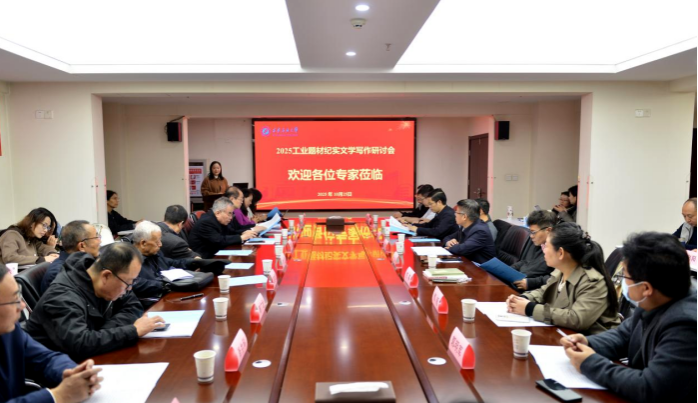
Participantsat the 2025 Seminar on Industrial-Themed Documentary Literature Writing
The event brought together renowned writers, critics, scholars, and publishing professionals from across the country. Distinguished attendees included Cheng Hai, a famed writer and member of the "Shaanxi Five Tiger Generals" writers' group; Li Xing, a prominent critic and former judge for the Mao Dun Literature Prize; Li Jiexun, former Vice Chairman of the China Petroleum Writers Association; Ma Zhaoyun, Executive Vice President of the Shaanxi Chinese Modern Literature Society; as well as other noted writers, editors, and professors. President Zhang Xiaoyong of XSYU attended the opening ceremony and delivered a welcome speech, alongside representatives from the University's Publicity Department, Periodical Center, School of Marxism, and School of Humanities.
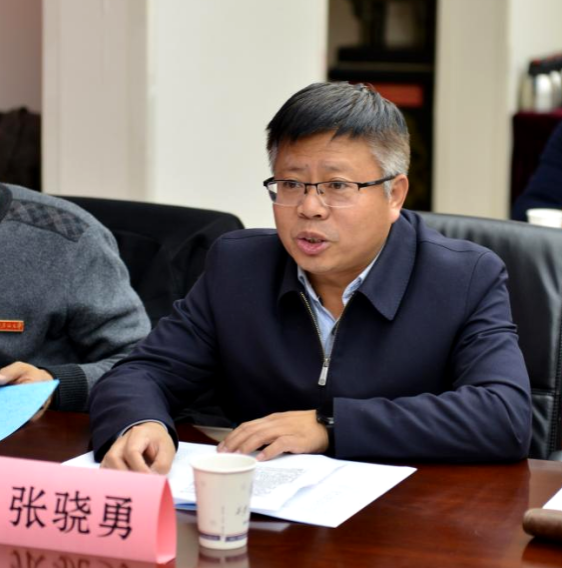
XSYU VicePresident Zhang Xiaoyong delivering the welcome address
In his speech, President Zhang Xiaoyong elaborated on the university's distinctive characteristics and cultural ethos. He emphasized that as the only higher education institution in Northwest China specializing in petroleum and petrochemical studies, XSYU has always grown alongside the nation's energy sector, founded for oil, thriving with oil, and advancing together with oil. President Zhang highlighted that while the university is dedicated to cultivating outstanding engineers and technical talents for the energy industry, it equally prioritizes campus culture and the nurturing of humanistic spirit, guided by the "Petroleum Spirit," the "Iron Man Spirit," and the "Yan'an Spirit." The integration of liberal arts education with the petroleum legacy has fostered generations of talented individuals known for being "honest, solidly grounded, pragmatic, diligent, and innovative."
The presentations by writers Cheng Hai and critic Li Xing resonated strongly with the audience. They highly commended the significance of the seminar, stating that "industrial themes deserve to be the pearls of the Republic's literature, and this seminar marks a new level of understanding regarding industrial literature."
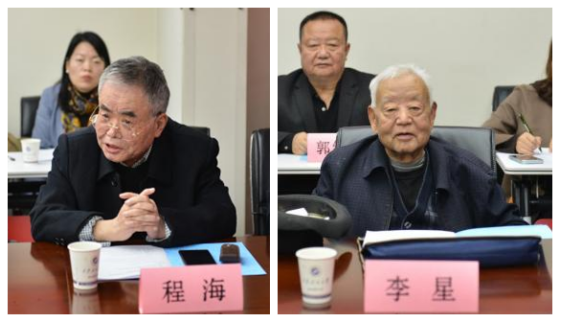
Keynote speakersCheng Hai and Li Xing
Professor Fang Ting, Dean of the School of Humanities, who presided over the event, stated that the School not only carries the name "Humanities" but also actively engages with "Industry," striving to build bridges between the Petroleum Spirit, industrial narratives, and literary expression. She pointed out that industrial-themed documentary literature is not only a vital direction for literary creation but also a crucial medium for telling China's industrial stories well, inheriting the craftsmanship spirit, and fostering cultural identity.
A book donation ceremony was held during the seminar. Mr. Li Jiexun and Ms. Cui Yingchun donated valuable industrial-themed literary works documenting the advanced deeds of the new-era Iron Man Wang Qimin and Daqing's new Iron Man Li Xinmin to the university's Iron Man Wang Jinxi Memorial Hall, contributing significantly to preserving the petroleum spirit and enriching the hall's collection.
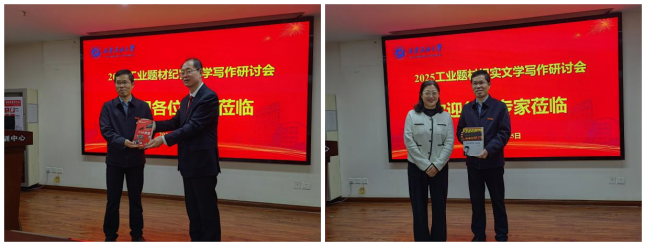
Bookdonation ceremony to the Iron Man Wang Jinxi Memorial Hall
Experts focused their discussions on the theme of "How Industrial-Themed Literature Can Become a Core Vehicle for Narrating the Spirit of the Republic," reaching three key consensuses:
1. Reaffirming the Value of the Theme: Industrial narratives were elevated to the level of "National Treasures," seen as both a database of modernization experience and a living carrier of revolutionary heritage.
2. Innovating Narrative Methods: Discussions emphasized deep exploration into the human experience within industry, integrating poetic construction with historical memory, and placing "labor" back at the center of narration to blend technical detail with emotional resonance.
3. Addressing Challenges in the New Era: Strategies were proposed to overcome obstacles like dry factual reporting, suggesting mutual validation of historical logic and literary value, shared narrative authority among industrial figures, and learning from successful models that blend market, reform, and human elements.
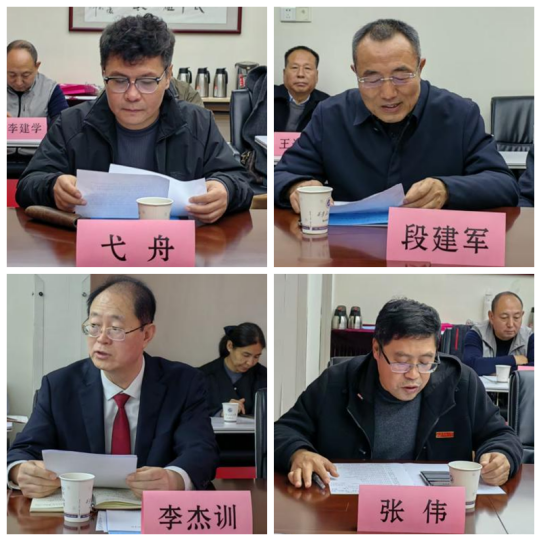
Discussions during the seminar session
Through keynote speeches, panel discussions, and exchanges, the seminar delved into the historical context, contemporary significance, creative methods, and theoretical frameworks of industrial-themed documentary literature. Participants agreed that this literary genre bears significantmissionin the new era, calling for more works with warmth, depth, and power to record industrial civilization, celebrate labor and creation, and showcase the national spirit. They affirmed that "the steel backbone of industry needs cultural infusion. Recording, researching, and disseminating the great achievements and spiritual values of China's industrial and energy development is our indispensable cultural responsibility and historical mission."
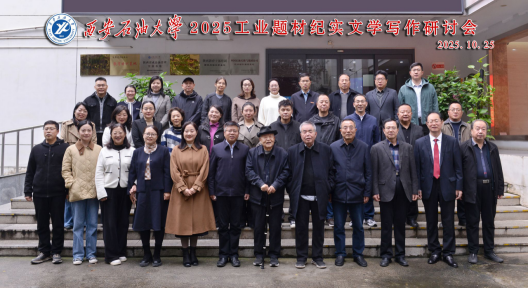
Group photo of participants at the seminar
The successful hosting of this seminar has injected new vitality into the creation and research of industrial-themed documentary literature, contributed to building a discourse system for industrial literature with Chinese characteristics, and served as a vivid practice of XSYU's initiative to build a strong "Cultural XSYU" identity. This cultural development activity consolidates the university's cultural foundation, expands the channels for disseminating its distinctive culture, and closely aligns campus culture construction with the themes of the times and the development of the industry.